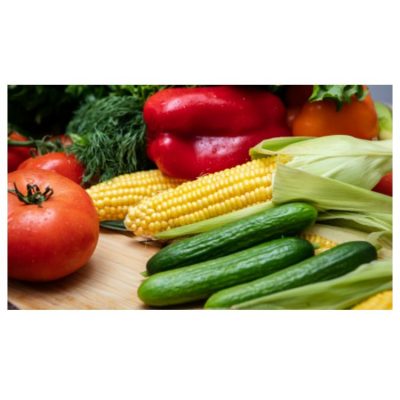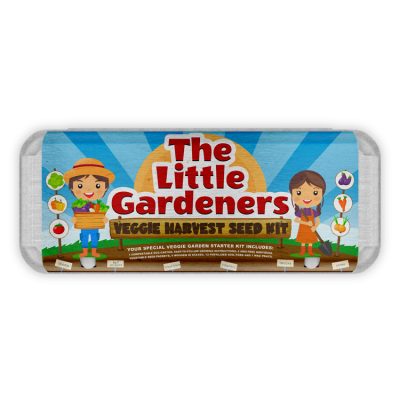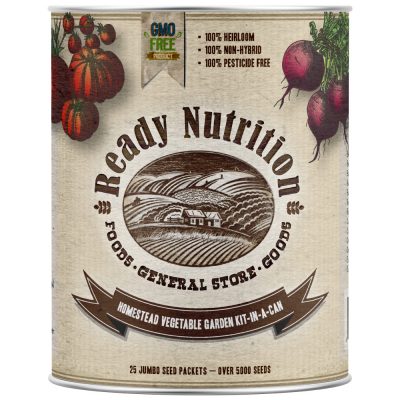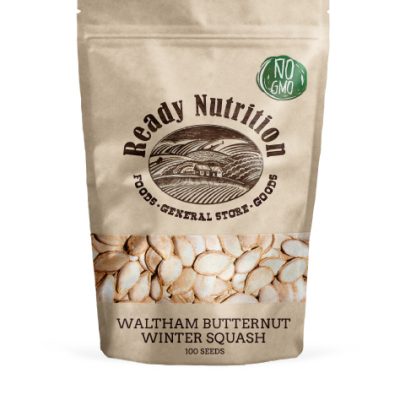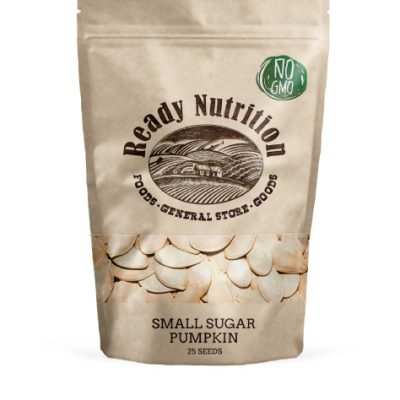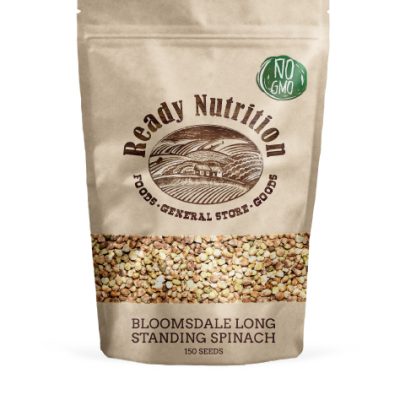
Soil is one of the most important ingredients you need for a productive garden. In order to have a lush garden that grows big, juicy vegetables, you need lots of nutrients in the soil. Over the years, I have read a lot about gardening and came across the Soil Science Society of America and loved their definition of soil. “Soil is not dirt. It is a complex mix of ingredients: minerals, air, water, and organic matter – countless organisms and the decaying remains of once living things. Soil is made of life. Soil makes life. And soil is life.” In order for plants to grow to their optimum capacity, they need nine different nutrients present in the soil. While most of these elements and nutrients are naturally found in soil, sometimes they can become depleted and need to be added to keep the soil healthy.
Soil makes life. No truer words have ever been spoken. If it isn’t for fungi, microorganisms in the soil and nutrients, where would we be? In fact, many gardeners forget this vital fact and tend to lean towards chemical fertilizers as a quick solution to get their plants to grow. Overtime, this can cause the soil to become depleted of vital nutrients because the fertilizers kill or leaches out the nutritional aspects of the soil. As well, chemical fertilizers are not welcoming to microorganisms that live naturally in the soil.
A Biodynamic Growing Space
You want to ensure the fertilizer method you use is biodynamic, efficient in the amount of materials used versus the amount of coverage area and can sustain the growing area for the long-term. There are many gardening amendment methods out there (and we all have one we are particularly fond of) and making compost tea is mine. It just makes sense to me! Compost tea will help restore many of the essential nutrients necessary for plant growth, as well as considerably boost microorganisms and vital minerals naturally. Microbes such as protozoa, fungi, algae and bacterias should also be present in the soil and can affect soil structure and fertility
Fun Fact: Millions upon millions of microbes are present in healthy soil and it is important to ensure they make your soil their home.
How To Make Compost Tea
Ensuring that you have a lot of biomass present in your soil will keep the your garden thriving and compost tea is a fast way to boost biomass and nutrients. By regularly using compost tea, it can increase root development, suppresses plant diseases, creates a biodiverse soil web and growth and, of course, increases plant yields.
So how does a simple tea do this? Compost tea takes the beneficial bacteria and fungus present in compost and exponentially increases them through aeration and sugars. These bacteria and fungus are critical in root establishment – and the more bacteria you have in your soil, the better. In fact, if you diversify your bacterias, you will make a healthier soil and compost tea is one of the easiest ways to do this.
The equipment you will need to make compost tea is as follows:
- 5-gallon bucket
- An aquarium pump large enough to run three bubblers or air stones
- Several feet of tubing
- A stick to stir the mixture
- Something to strain the tea, like an old pillowcase or nylon stocking
Compost Tea
- 4 cups worm castings
- 4 ounces liquid seaweed
- 3 tablespoons unsulfered molasses (this creates a good ph balance)
- 3 tablespoons micorrhizal inoculant
- 1/4 cup azomite rock dust
- 1/4 cup rabbit manure (horse or cow manure works great too)
Note: I will also add some earthworm tea that I have from my earthworms and this adds even more nutrients to the brew!
- Add water to a 5-gallon plastic bucket. If you are using tap water, allow water to sit for 24 hours in order for chlorine and other chemicals to dissipate.
- Add liqui ingredients to water in 5-gallon bucket and stir until incorporated.
- In pillowcase or nylon stocking, add dry ingredients (rock dust, inoculant, manure, worm castings, etc.) and tie onto stick and add to bucket.
- Turn on aquarium pump with hose attached and oxygenate water for 18-24 hours. This will help the beneficial bacterias, minerals and sugars activate.
- Periodically check on brew. There should be a nice foam at the top.
- After 24 hours, turn off pump and remove dry ingredients (add to compost pile). Use compost tea as a foliar spray or root drench.
Note: Do not over-brew your compost tea. Twenty four hours is all it needs to get the protozoa and fungi kickstarted into reproduction.
You can use the tea as often as you wish. I used it once a month on my garden during the growing season, or when I thought the plants needed a little extra TLC. In fact, you can also use compost tea to prevent plant shock by soaking new plants in compost tea before planting. It does double duty by giving the plants a good soaking prior to planting and adds beneficial microorganisms to the fragile root systems. As well, I have had a lot of success using it as a foliar spray and as a root drench and after a three month period, I was very impressed with the soil. It was fluffy, retained moisture and I noticed more beneficial insects coming around more.
Another highlight of using compost tea was when harvest time came, the vegetables tasted sweeter than usual. I’m not sure if this was a result for the compost tea or just a fluke, but I felt that it had to be mentioned. As well, I had no issues with molds or diseases this year and believe it to be a result of the compost tea I used. This is by far the easiest way to get essential nutrients quickly into the soil, and I love that it can also be used as a foliar spray. As well, the initial investment of compost tea ingredients will provide for many uses throughout the summer, so it’s worth the investment.
For the last three years, I have strictly used compost tea and an all-purpose organic fertilizer in my garden and have seen the soil composition become more healthy and earthworms activity is everywhere! It is a great way to add essential nutrients back to the soil, and in turn, the soil helps to grow an amazing harvest!


